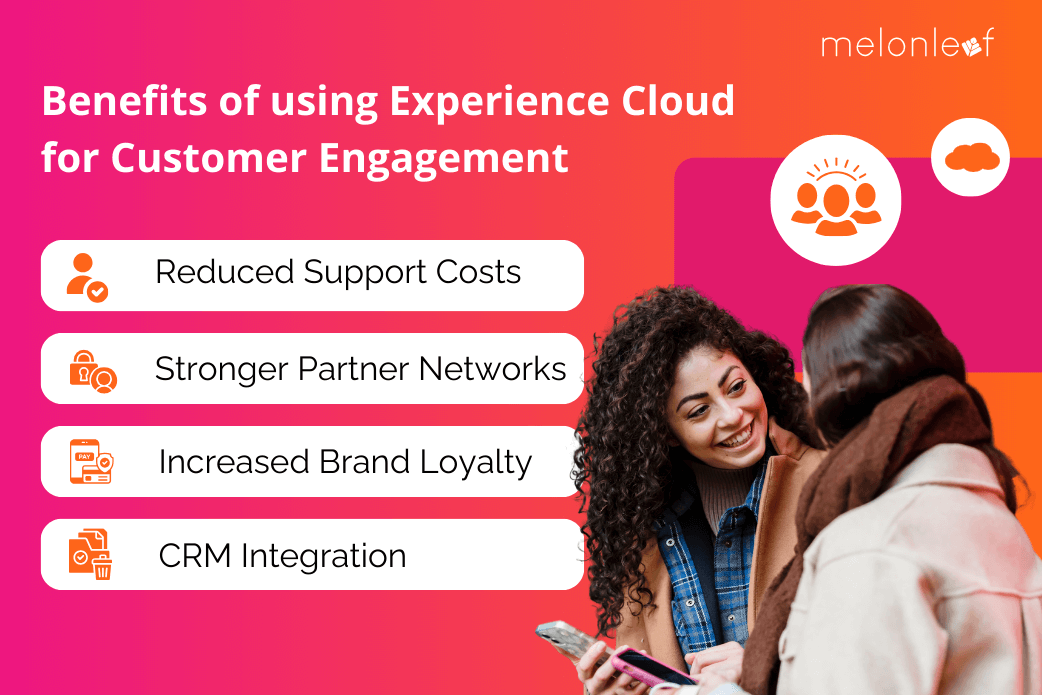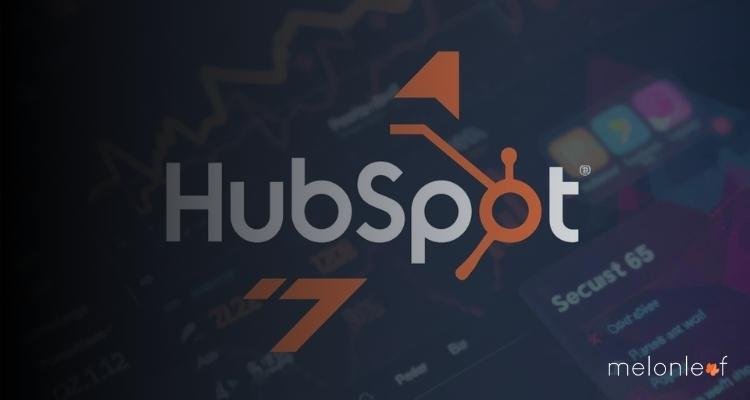Salesforce offers a variety of cloud-based solutions, each designed to address different business needs. Two of the most widely used are Sales Cloud and Experience Cloud, both built on the Salesforce platform but serving distinct purposes.
1. Sales Cloud focuses on managing leads, opportunities, and sales pipelines to drive revenue.
2. Experience Cloud creates digital experiences that allow customers, partners, and employees to engage through portals, communities, and self-service platforms.
Understanding their differences is essential for businesses looking to optimize operations. This article breaks down the core functionalities of both solutions, their benefits, and how to determine which one fits your business needs.
What is Sales Cloud?
Sales Cloud is a customer relationship management (CRM) platform built for businesses that rely on structured sales processes. It centralizes all customer data, helping sales teams manage interactions, track deals, and forecast revenue.
Key Features of Sales Cloud
- Lead and Opportunity Management: Helps sales teams track potential customers from first contact to closing a deal.
- Sales Automation: Reduces manual tasks through workflows, approval processes, and automated follow-ups.
- AI-Powered Insights (Einstein Analytics): Predicts which leads are likely to convert and provide recommendations on the next steps.
- Pipeline and Forecasting Tools: Gives sales leaders visibility into revenue projections and team performance.
- Collaboration Tools: Keeps sales teams connected with integrated email, notes, and task management.
- Mobile Accessibility: Sales reps can access data and close deals from anywhere, even on the go.
Sales Cloud helps sales teams work efficiently, closing deals faster while maintaining clear visibility over revenue streams.
Looking for a structured approach to Sales Cloud implementation? Dive deeper into a complete Salesforce Sales Cloud Guide!
What is Experience Cloud?
While Sales Cloud focuses on sales management, Experience Cloud is designed to build digital communities where customers, partners, and employees can interact. Businesses use it to create branded portals, customer support hubs, and partner collaboration spaces.
Key Features of Experience Cloud
Customer Self-Service Portals: Allows customers to access FAQs, submit support tickets, and track cases.
Partner Communities: Helps businesses collaborate with resellers, vendors, and distributors in a shared workspace.
Content Personalization: Provides users with relevant content based on their behavior and preferences.
AI-Powered Recommendations: Suggest relevant resources, discussion forums, and case articles to users.
Integration with Salesforce CRM: Ensures customer interactions are tracked and accessible to internal teams.
Mobile-Friendly Digital Experiences: Users can engage with communities from any device.
Experience Cloud helps businesses create stronger relationships with their customers and partners by offering them direct access to information and services.
Explore the Guide to Experience Cloud, to build a self-service portal or a partner community.
Key Differences Between Sales Cloud and Experience Cloud
Both Sales Cloud and Experience Cloud bring immense value to organizations, but they cater to distinct business functions. Below are the key differences to help you understand their strengths.
Purpose and Business Focus
Every business operates with a unique set of priorities. Sales Cloud is designed to improve sales performance, making it an essential tool for organizations that need structured lead tracking, opportunity management, and revenue forecasting.
Experience Cloud, on the other hand, is built for engagement. It helps businesses create digital spaces where customers, partners, and employees can interact, access resources, and collaborate. Instead of managing sales pipelines, it focuses on delivering a rich, interactive user experience.
Intended Users and Stakeholders
The primary users of Sales Cloud are sales teams, business development managers, and executives who need a CRM system that helps them track deals and analyze sales performance. The platform caters to teams looking to optimize their sales pipeline and productivity.
In contrast, Experience Cloud is built for customers, partners, and employees. It is used by businesses that want to create portals, discussion forums, and support communities where users can interact with content, resolve issues, and communicate with company representatives.
Approach to Data Management
A company’s data needs depend on how it interacts with customers. Sales Cloud focuses on managing customer and sales data, offering in-depth insights into leads, conversion rates, and revenue projections. It provides tools for sales forecasting and automating tasks related to closing deals.
Experience Cloud, however, manages engagement data, storing information about customer interactions, community participation, and partner activities. The goal is to provide a centralized space where users can find relevant content, resolve issues, and collaborate with others.
Interaction and Communication Models
Customer interaction varies depending on the business model. Sales Cloud primarily facilitates one-on-one communication, helping sales reps connect with leads and customers through calls, emails, and meetings.
Conversely, Experience Cloud fosters multi-user engagement. Instead of individual conversations, businesses can create forums, self-service portals, and partner networks that encourage broader discussions and knowledge-sharing among users.
Automation and AI Utilization
Both platforms use automation and AI-driven insights but in different ways. Sales Cloud relies on AI to analyze sales trends, suggest the best course of action, and prioritize high-value deals. It helps sales reps identify the most promising opportunities and manage customer relationships efficiently.
Experience Cloud uses AI to personalize user experiences, suggesting relevant articles, discussions, or solutions based on past interactions. The platform focuses on improving customer engagement through intelligent content recommendations.

Integration with Other Salesforce Products
Both platforms integrate within the Salesforce ecosystem, but their focus areas differ. Sales Cloud connects with Marketing Cloud, Service Cloud, and Einstein Analytics to create a comprehensive sales solution that tracks leads, manages customer service cases, and automates marketing efforts.
Experience Cloud integrates with Service Cloud, Partner Relationship Management (PRM), and the Customer Data Platform (CDP) to provide a unified engagement experience. Businesses can use these integrations to offer self-service options, track customer interactions, and manage partner relationships more effectively.
Customization and Branding Options
Customization plays a crucial role in aligning technology with business needs. Sales Cloud provides customizable dashboards, reports, and automation tools to fit different sales strategies. Businesses can adjust workflows and metrics to reflect their unique sales process.
Experience Cloud offers deeper customization options, particularly in terms of branding and user experience. Businesses can create fully branded portals, design custom layouts, and personalize content to match their identity. The platform is ideal for organizations that want to build a digital experience tailored to their audience.
Benefits of using Sales Cloud for Sales Teams
Sales Cloud gives businesses the structure they need to manage high-volume sales cycles efficiently. Some of the key benefits include:
- Faster Deal Closures: Sales teams can automate repetitive tasks, allowing them to focus on selling.
- Improved Forecasting Accuracy: Predictive insights help leaders make informed decisions about revenue and performance.
- Better Collaboration: Sales reps, managers, and executives can access real-time data on any device.
- Higher Productivity: Automation reduces manual data entry, increasing the time spent on closing deals.
For businesses focused on sales-driven growth, Sales Cloud is a powerful tool that optimizes sales operations.
Benefits of using Experience Cloud for Customer Engagement
Experience Cloud provides businesses with the tools needed to create strong customer and partner relationships. Key benefits of using Experience Cloud are:

- Reduced Customer Support Costs: Self-service portals allow customers to find answers without contacting support.
- Stronger Partner Networks: Businesses can provide partners with training materials, sales resources, and collaboration tools.
- Increased Brand Loyalty: Customers who feel connected to a business through digital experiences are more likely to stay engaged.
- CRM Integration: All interactions in the community feed directly into Salesforce, providing a 360-degree view of the customer.
To build stronger digital connections with their audiences, businesses can trust Experience Cloud to drive long-term engagement.
Sales Cloud vs Experience Cloud: Which cloud is right for your business?
Choosing between Sales Cloud and Experience Cloud depends on your business priorities:
- If your goal is to manage sales operations, track deals, and forecast revenue, then Sales Cloud is the right choice.
- If your focus is on customer self-service, community building, and partner engagement, then Experience Cloud is the better option.
- If your business needs both structured sales processes and a strong digital community, Salesforce allows them to be used together for a complete CRM solution.
For businesses looking to implement Salesforce, working with a Salesforce-certified consulting partner like Melonleaf Consulting can help create a solution that aligns with business goals.
Wrapping Up
Both Sales Cloud and Experience Cloud serve different purposes within the Salesforce ecosystem. Sales Cloud equips sales teams with structured workflows, AI-driven insights, and automation to manage leads and close deals efficiently. Experience Cloud, on the other hand, fosters collaboration through digital portals, allowing customers and partners to engage with the brand in meaningful ways.
The right Salesforce solution promises growth, and having the right guidance makes all the difference. Melonleaf Consulting specializes in helping businesses use the Salesforce ecosystem, finding the best fit for specific requirements. Connect with our Salesforce specialists to explore the right solution for your business!












